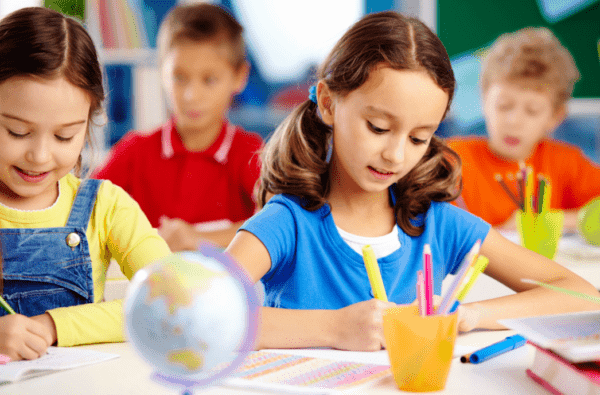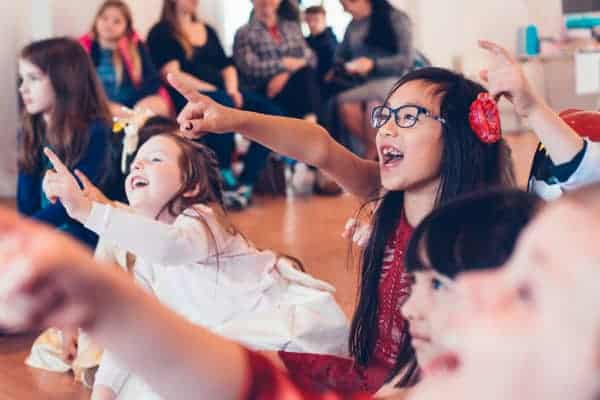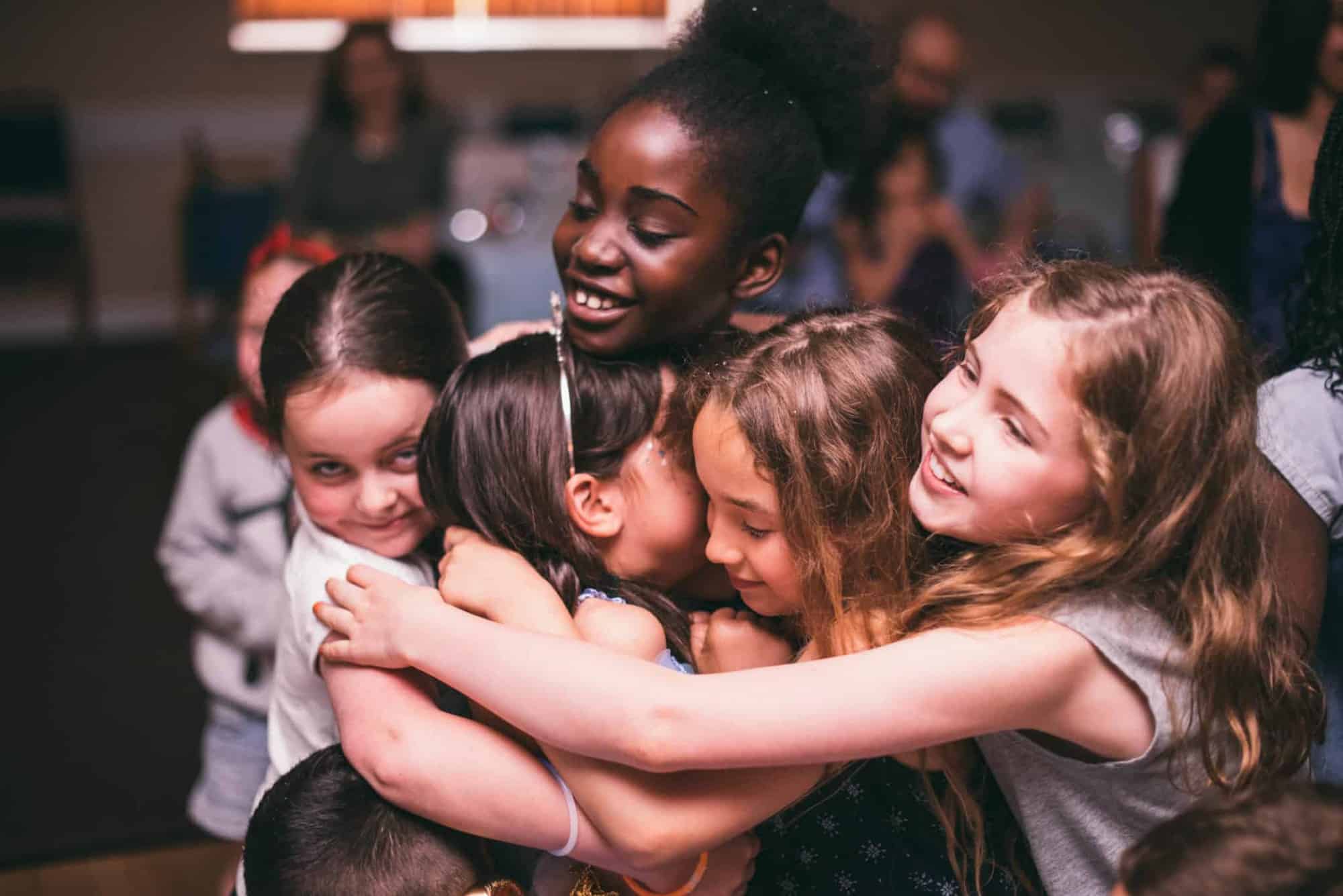Parents and teachers are always on the lookout for things that can benefit kids, help them to cope with the challenges they face and make life a little easier. Over the years, a range of different teaching and parenting techniques have come in and out of fashion, with each trend helping adults to understand the world of young people in a slightly different way.
When it comes to improving kids’ concentration, behaviour and stress levels, one of the most popular – and effective – movements we’ve seen in recent years is mindfulness. Now practised by hundreds of thousands of people around the world, mindfulness helps people of all ages to connect with the world around them, control their emotions and live a little more calmly.
For children and young people, the benefits of mindfulness can be even more profound. Growing up is never easy and mindfulness can help to teach kids the skills they need to cope with the challenges of everyday life. On a day-to-day basis, kids can also use mindfulness exercises to connect with the world around them, de-stress and take a little bit of time out of their all-too-busy lives.
If you’re considering teaching your kids about mindfulness, or even enrolling them on a mindfulness course, understanding the core benefits of mindfulness for children is essential. Although not all kids will experience exactly the same benefits, we’re taking a look at some of the most important things participants can expect to gain from the practice.
What is Mindfulness?
Essentially, mindfulness is about being fully aware of the present moment. Mindfulness exercises are designed to help people really connect with the present and push aside thoughts and worries not relevant to that precise moment.
Often, people begin practising mindfulness as a way to cope with the stresses and strains of everyday life. If you or your kids are always thinking about the next thing on the to-do list, rushing through one task to get to the next one or planning ahead to the next activity, you’re not really enjoying the moment. Taking the time to really make the most of the present can have many benefits and can help us to live happier, less stressful and more fulfilled lives.
Regular mindfulness practice has been shown to have a number of important benefits. For adults, one of the major advantages is that it can help to calm the mind and bring them back to the present moment. For kids, mindfulness is a great way of navigating complex emotions and learning how to deal calmly with the world around them.

Mindfulness for Kids
In general, kids are better at mindfulness than adults. Children are often better able to focus on the games they’re playing or the situations they’re in rather than always thinking about what’s coming next.
However, on a smaller scale, kids can easily become distracted and worked up over small incidents and challenges. Their minds can become muddled and they can find it hard to control their emotions and get back to a level pegging. This is where mindfulness can make a big difference. By teaching kids how to recognise the emotions they’re feeling, and how to control negative emotions, mindfulness can make a big difference to stress levels and to children’s behaviour.
By starting mindfulness early, you can help your kids to cope a little better with their emotions as they grow up. There are mindfulness exercises for kids of all ages so you can start working with your little ones as soon as they’re old enough to follow basic instructions. Make sure you tailor the exercises you practice to suit the age and ability of your kids. This will help to ensure they don’t become bored or confused during their mindfulness sessions.
Wellbeing and mental health
Wellbeing and mental health are major issues for today’s young people. According to research from Action for Children, around one in three young people will experience mental health problems as they grow up. While some kids will be able to overcome these issues relatively easily, for others, mental health problems can be a real challenge and can have a lasting impact on their young lives.
Stress is a major cause of mental health problems for today’s young people. In 2016/17, the number of stress-related calls received by Childline increased by 11% compared to the two previous years. This stress is being caused by a variety of academic and social issues and is something that can be a real challenge for kids of all ages.
Practising mindfulness can help to both treat and prevent mental health issues. Taking just a few minutes out of their hectic daily schedules can help kids to unwind, relax and de-stress. Mindfulness exercises also offer young people an opportunity to focus on the things in their lives that are going well as well as those that they are finding a challenge to deal with.
By regularly practising mindfulness, kids can learn valuable techniques for controlling stress levels and lowering anxiety. It can also teach kids how to be happy in the present moment, something that will stand them in good stead as they move into adulthood.
Anything that helps to lower stress levels in kids should be welcomed. Teaching children how to cope positively with stressful situations when they’re young helps to ensure that they grow up into well-rounded adults who are able to cope with the world around them.

Concentration and cognition
Concentration is another major challenge for people of all ages. Everyone, from toddlers to pensioners, can struggle to stay focused for long periods of time, especially if the thing they’re trying to concentrate on is complex or hard to understand.
Practising mindfulness on a regular basis has been shown to help boost concentration levels among participants. During mindfulness exercises, those practising the technique are asked to focus on the present moment and are anchored to the ‘now’ using a range of breathing techniques and other relatively simple methods.
Children can use the techniques they learn practising mindfulness to boost concentration both in the classroom and at home. When they feel their minds starting to stray, kids can use the breathing and concentration techniques they’ve learned to push distractions aside and stay focused on the present. By teaching kids how to direct their attention with greater awareness and skill, mindfulness can improve children’s ability to concentrate and help them to ignore distractions.
Practising mindfulness on a regular basis can also help to improve cognition. During exercises, participants are asked to think about the world around them in a different way and to consider a wide variety of sounds, smells, objects and feelings in their immediate surroundings. This can help to encourage critical and analytical thinking, two things that can help significantly when it comes to improving the way that kids cope with the schoolwork presented to them.
For children who become stressed when they don’t understand a problem or topic, regular mindfulness practice can help to keep them calm and focused. Through repeated practice, kids will learn how to untangle their thoughts, simplify the problems they’re presented with and make sense of the world around them.
If a child is struggling with concentration and cognition, parents or teachers can focus on mindfulness exercises that gradually build up the attention span over time. Initially, these exercises can be just a minute or two long. However, as the child’s concentration improves, they can be lengthened and practised in combination with other exercises. In the long term, this should have a positive impact on a child’s concentration span and help them to boost their achievements in the classroom.
Social and emotional learning
When mindfulness is taught in schools, it often falls under the umbrella of Personal, Social, Health and Economic (PSHE) education. And in fact, the social aspect of mindfulness is very important.
A lot of the stresses and strains experienced by today’s young people revolve around social media and classroom politics. Kids of all ages can suffer from issues stemming from low self-esteem and a lot of children experience low confidence at some point in their lives.
Mindfulness exercises can be used to help boost emotional learning and help give kids the tools they need to cope socially with their surroundings. One of the main ways in which mindfulness can help with emotional learning is by teaching children how to identify the emotions that they’re feeling.
Adults working with kids on mindfulness practice can select exercises that specifically focus on emotion. Although some children may find the abstract nature of these exercises a challenge at first, by taking things slowly and without any pressure, they will gradually find it easier and easier to identify the emotions they’re feeling.
Once they’re able to identify their emotions, kids are much better placed to deal with them constructively. This can help to ease the frustration often associated with growing up and can give young people the tools they need to cope more confidently with the way they feel.
Once children have learned how to identify the emotions they’re feeling, they can move on to thinking about the emotions other people are going through. Understanding that other people have feelings, and that you can have an impact on those feelings, is a big step for younger children. Once they’ve grasped the concept, dealing with complex social situations should become a little easier.
Behaviour
A lot of the time, mindfulness exercises are introduced to the home or classroom in an attempt to improve kids’ behaviour. There are a number of ways in which regular mindfulness practice can help to improve behaviour. For a start, when children play up in school, and at home, it’s often because they feel frustrated or unable to process the world around them. Many mindfulness exercises specifically focus on helping kids to navigate the world and to think calmly and clearly about the feelings and emotions they’re experiencing.
This can make a big difference to children’s overall behaviour and can help to prevent meltdowns and other events caused by stress. Once kids have been practising mindfulness for a while, they should be able to use the techniques they’ve learned to spot situations that may trigger negative emotions. They can then choose to walk away from the situation or try to navigate it a little more calmly.
Practising short mindfulness exercises a few times during the school day can also have a big impact on kids’ behaviour. As most parents and teachers will know, children are more likely to play up when they’re stressed or tired. As the school day wears on, kids are more likely to feel tired or emotional and so are more likely to misbehave.
By practising mindfulness during the day, teachers can help kids to focus on the present, calm down and re-focus. Following a mindfulness exercise, kids will be less likely to get worked up easily and should be able to keep a handle on their emotions for the next few hours.

Other benefits of mindfulness
As well as these major benefits, mindfulness has been shown to have a number of other advantages. Although research is still ongoing, a lot of people report that regular mindfulness practice helps to improve immune function, increase empathy, enhance relationships, improve academic performance and reduce symptoms of hyperactivity in young people.
Teaching young people to cope with their emotions, and the world around them, at this crucial age can also have big benefits for the future. As these kids grow up, they’ll be better able to navigate the situations they find themselves in and the challenges they face.
There are various studies available for those who want to learn more about the impact of mindfulness on kids. Take a look at the Mindfulness in Schools Project website to find out more.
How to help children be more mindful
There are a few different ways that you can help your kids to become more mindful. If you don’t want to organise set mindfulness practice sessions, you can simply work mindfulness practice into different everyday activities. For example, next time you’re taking a walk through the local woods, ask your kids to think about the world around them in a little more detail.
Ask them to notice the different plants, insects and landscapes they see along the way. Take the time to discuss the things that you come across in detail and try to avoid rushing through the walk, even if the weather isn’t playing ball. If you really can’t get outside, you can do a similar form of this exercise indoors. Simply ask your kids to walk around the room describing in detail what they see. You can also ask them to select a few different objects for a closer inspection.
As well as being good for kids, this type of exercise can really benefit grown-ups. All too often, we rush through our daily lives without really appreciating the things around us. Try to repeat these extended nature walks at least once a week to get kids thinking about the world around them in a slightly different way.
If you’re looking for a more structured approach, there are lots of mindfulness exercises out there that are perfect to practice with kids. Many exercises can be completed in just a few minutes and most don’t need any props or extra equipment.
Many of the best mindfulness exercises for kids focus on breathing. Simply getting kids to close their eyes and connect with their breath for a minute or two can have a big impact on the way that they feel and the way they handle their emotions.
There are lots of variations of breathing exercises, so finding one that’s suitable for your kids should be easy.

Mindfulness in schools
More and more schools are incorporating mindfulness, or aspects of mindfulness, into their daily routines. If you want your kids’ school or the school you work in, to introduce mindfulness to its curriculum, there are now a number or organisations across the UK that can help. These groups work to promote mindfulness in schools and to support teachers in introducing mindfulness to kids. Get in touch with the Mindfulness in Schools Project to find out more about the support that’s available in your local area.
Mindfulness can be hugely beneficial to kids of all ages. Introducing mindfulness exercises to your children, and working on them systematically for the weeks and months to come, can produce several significant benefits, from improved emotional intelligence to better concentration.
To find out more about mindfulness, how it can be introduced to children and our new mindfulness courses, get in touch today.

